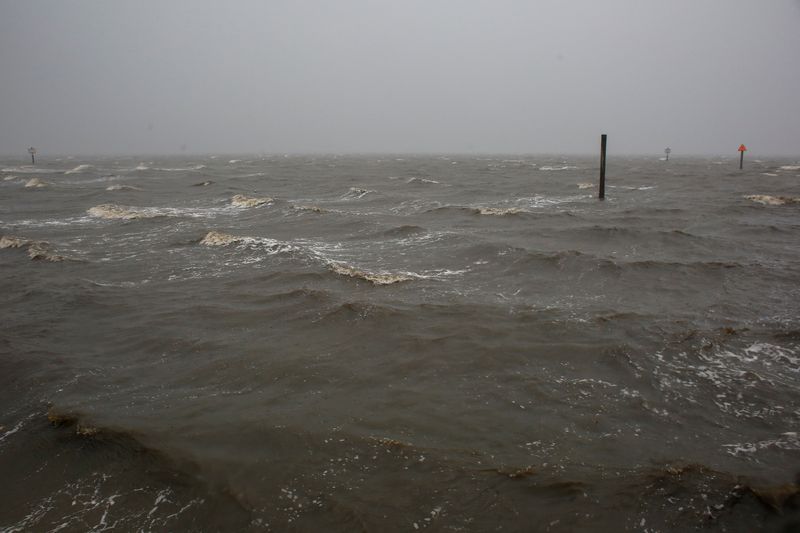CHICAGO (Reuters) - Fertilizer plants, livestock feed facilities and at least one large flour mill in Florida closed on Wednesday in preparation for Hurricane Milton's destructive winds, heavy rain and deadly storm surge.
The Category 4 storm closed in on Florida's west coast as millions of people along a stretch of more than 300 miles (483 km) of coastline were under evacuation orders ahead of its expected landfall near Tampa Bay around midnight.
Milton is the second major storm to hit Florida in two weeks after Hurricane Helene came ashore in the Big Bend region on Sept. 26 and carved a path of destruction across agricultural areas of the Southeast.
Fertilizer maker Mosaic said it has idled Florida operations. The company, which mines phosphate rock in the state and produces about three-quarters of North America's phosphate fertilizers, said last week that a facility in Riverview, Florida, was offline because of a storm surge from Helene.
Milton is expected to affect an even larger number of Florida phosphate facilities than Helene, said Veronica Nigh, senior economist for The Fertilizer Institute, an industry group.
"The lack of processing and phosphate shipments that will occur as a result of Helene and now Milton will further tighten the phosphate market," Nigh said.
As much as 42% of U.S. ammonium phosphate, 32% of U.S. phosphate rock, and half of U.S. wet-processed phosphoric acid production capacity is located near Tampa Bay, Nigh said. About 40% of all U.S. phosphate fertilizer exports and 27% of total fertilizer exports go through Port Tampa Bay, she said.

Flour producer Ardent Mills closed its Port Redwing mill south of Tampa. The facility, opened in 2022, can produce up to 1.8 million pounds of flour a day from imported grain or wheat grown in the Midwest and Southeast.
Global agribusiness Cargill Inc preemptively closed its salt-packaging and animal-nutrition facility in Milton's path, the company said.